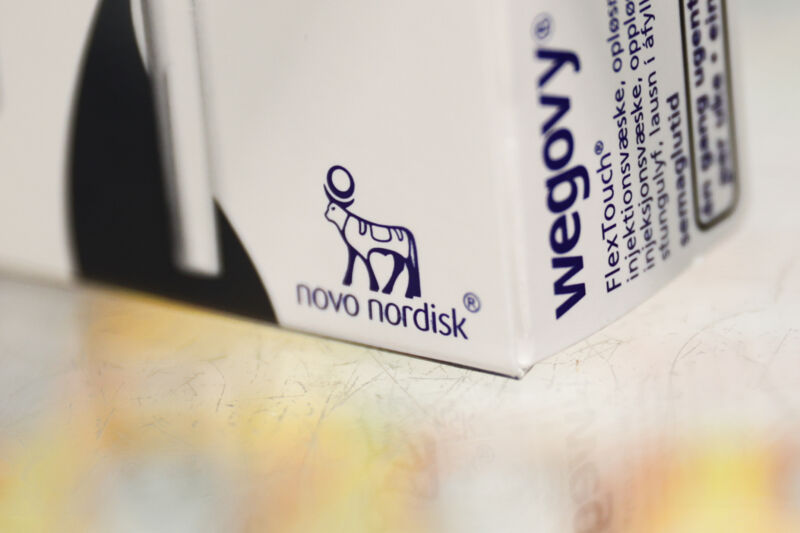
With the debut of remarkably effective weight-loss drugs, America's high obesity rate and its uniquely astronomical prescription drug pricing appear to be set on a catastrophic collision course—one that threatens to "bankrupt our entire health care system," according to a new Senate report that modeled the economic impact of the drugs in different uptake scenarios.
If just half of the adults in the US with obesity start taking a new weight-loss drug, such as Wegovy, the collective cost would total an estimated $411 billion per year, the analysis found. That's more than the $406 billion Americans spent in 2022 on all prescription drugs combined.While the bulk of the spending on weight-loss drugs will occur in the commercial market—which could easily lead to spikes in health insurance premiums—taxpayer-funded Medicare and Medicaid programs will also see an extraordinary financial burden. In the scenario that half of adults with obesity go on the drug, the cost to those federal programs would total $166 billion per year, rivaling the programs' total 2022 drug costs of $175 billion.
In all, by 2031, total US spending on prescription drugs is poised to reach over $1 trillion per year due to weight-loss drugs. Without them, the baseline projected spending on all prescription drugs would be just under $600 billion.
The analysis was put together by the Senate's Health, Education, Labor, and Pensions (HELP) committee, chaired by staunch drug-pricing critic Bernie Sanders (I-Vt). And it's quick to knock down a common argument about the high prices for smash-hit weight-loss drugs. That is, with their high effectiveness, the drugs will improve people's health in wide-ranging ways, including controlling diabetes, improving cardiovascular health, and potentially more. And, with those improvements, people won't need as much health care, generally, lowering health care costs across the board.
But, while the drugs do appear to have wide-ranging, life-altering benefits for overall health, the prices of the drugs are still set too high to be entirely offset by any savings in health care use. The HELP committee analysis cited a March Congressional Budget Office (CBO) report that found: "at their current prices, [anti-obesity medicines] would cost the federal government more than it would save from reducing other health care spending—which would lead to an overall increase in the deficit over the next 10 years." Moreover, in April, the head of the CBO said that the drugmakers would have to slash prices of their weight-loss drugs by 90 percent to "get in the ballpark" of not increasing the national deficit.The HELP committee report offered a relatively simple solution to the problem: Drugmakers should set their US prices to match the relatively low prices they've set in other countries. The report focused on Wegovy because it currently accounts for the most US prescriptions in the new class of weight-loss drugs (GLP-1 drugs). Wegovy is made by Denmark-based Novo Nordisk.
In the US, the estimated net price (after rebates) of Wegovy is $809 per month. In Denmark, the price is $186 per month. A study by researchers at Yale estimated that drugs like Wegovy can be profitably manufactured for less than $5 per month.
If Novo Nordisk set its US prices for Wegovy to match the Danish price, spending to treat half of US adults with obesity would drop from $411 billion to $94.5 billion, a roughly $316.5 billion savings.
Without a dramatic price cut, Americans will likely face either losing access to the drugs or shouldering higher overall health care costs, or some of both. The HELP committee report highlighted how this recently played out in North Carolina. In January, the board of trustees for the state employee health plan voted to end all coverage of Wegovy and other GLP-1 drugs due to the cost. Estimates found that if the plan continued to cover the drugs, the state would need to nearly double health insurance premiums to offset the costs.
reader comments
496